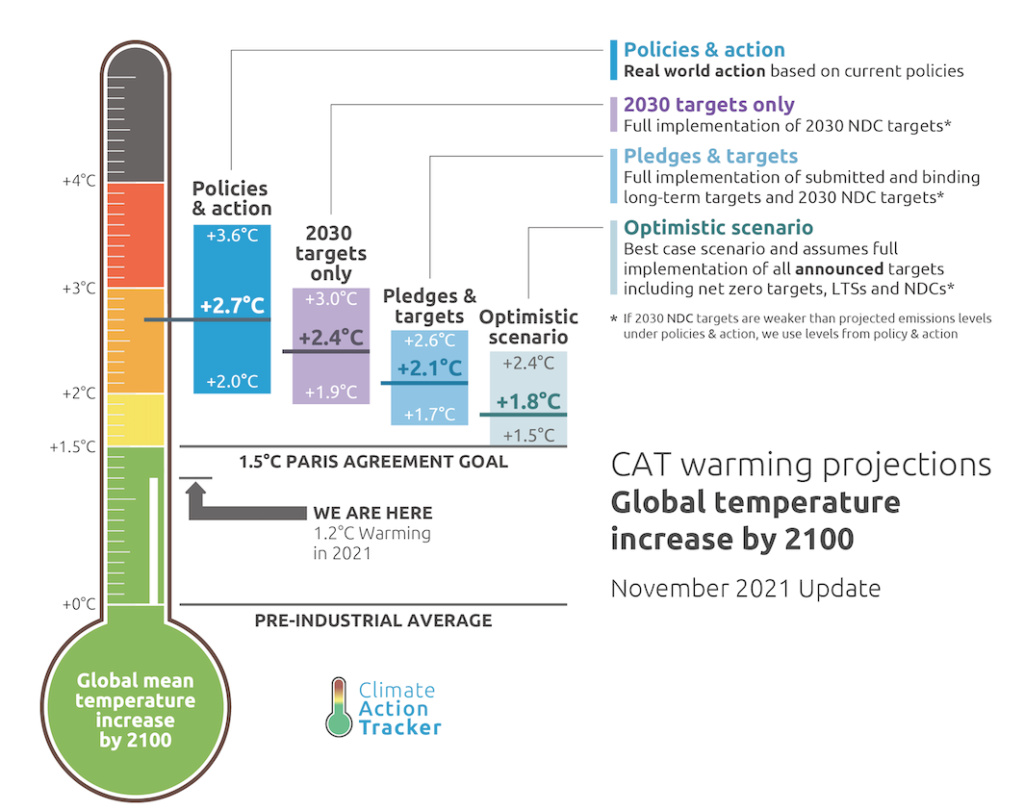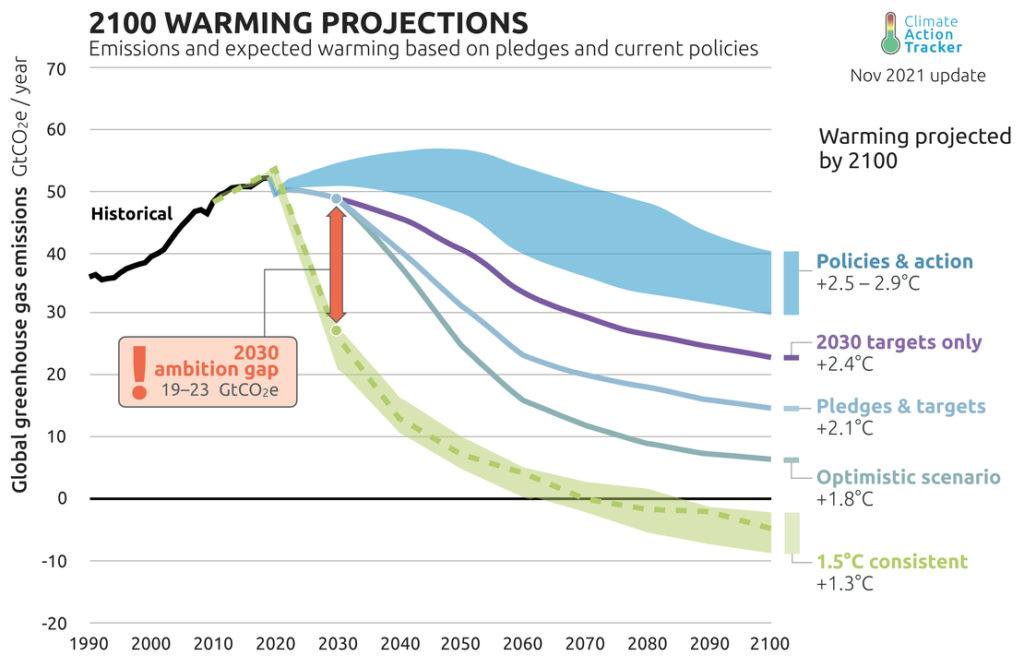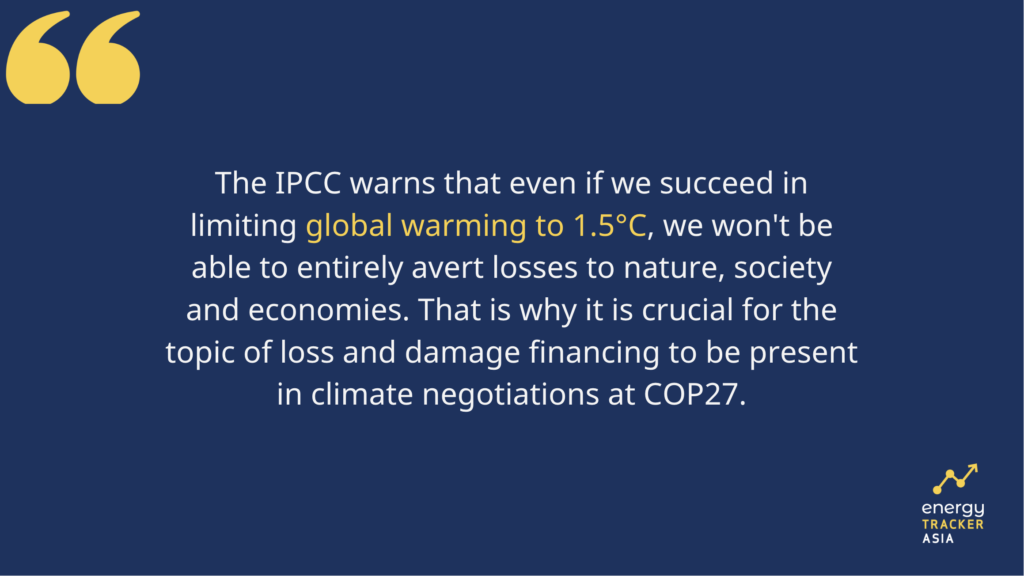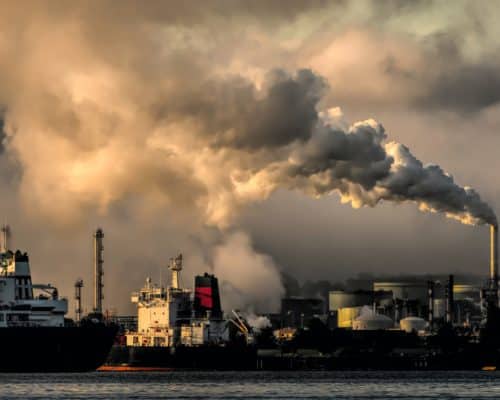Climate Negotiations Agenda at COP27 2022
Photo by RafaPress via ShutterStock
01 November 2022 – by Viktor Tachev Comments (0)
In the wake of the latest geopolitical events and the rising energy and food crises, climate negotiations have taken a back seat. UN Climate Change Conference 2022 COP27 should bring the spotlight back on the climate crisis. Climate change’s implications are growing severer by the day, with the least developed countries suffering the most.
Global leaders should use the COP27 2022 stage to advocate for more ambitious climate financing pledges and to hold the parties that stall on their targets and fail on their promises accountable.
The 27th session of the Conference of the Parties of the UNFCC (United Nations Framework Convention on Climate Change) will take place in Sharm El Sheikh, Egypt, from 6-18 November 2022.
The International Climate Crisis Is Growing in Severity
Climate Trends’ study finds that 2022 has been among the most devastating years in terms of climate crisis impacts. It proves that no country or continent is safe.
China had to deal with temperatures reaching over 40°C for 70 days.
Europe suffered the worst drought in over 500 years, causing wildfires, a reduction in crops and energy system disruptions.
The US went through the worst megadrought in 1,200 years.
South Korea saw the worst flooding in 80 years in August, with rainfall double the typical levels.
Massive floods affected over one-third of Pakistan, displacing 33 million people and causing the deaths of over 1,500. The disaster came shortly after the country broke its temperature records in March, which saw 62% less rain than average.
India suffered from temperatures of 49°C spring and experienced its hottest March since records began 122 years ago. The month was also extremely dry, with 71% below-average rainfall in the country.
The losses from the floods in Australia totalled USD 3.5 billion, one of the most expensive natural catastrophes in the country.
Climate Negotiations at Risk
Climate scientists consider the extreme droughts, heatwaves and floods to be stark reminders that climate change will spare no country. As Dr Friederike Otto from the Imperial College London states, losses and damage will get worse with every extra day the world emits greenhouse gases.
Even if all the COP26 targets are fulfilled, the world will still be on track for 2.4°C global warming by 2100.

As a result, the IPCC compares the 1.5°C target to being on “life support”. It warns that climate change impacts the world far more quickly than scientists anticipated.
Yet, despite the disturbing evidence and calls from academics to take urgent action, climate negotiations at COP27 are at risk of stalling.
COP27 is unlikely to become a stage for updated NDCs in line with 1.5°C or new pledges similar to the promised – but undelivered – USD 100 billion per year in climate financing. The prospects for meeting COP26 sectoral commitments also aren’t bright. At the same time, the role of gas in the transition will likely receive significant support.
Another possible stumbling block is the complicated geopolitical situation all across the world, including the war in Ukraine. In theory, events like these should motivate global leaders to seek energy self-sufficiency and pursue an accelerated transition from fossil fuels.

The Most Pressing Topics on the Climate Change Negotiations Agenda at COP27 Egypt
Chief topics on COP27’s agenda should be advocating for increased climate action from the biggest polluters, ensuring sufficient climate financing for adaptation, mitigation, loss and damage and constructing roadmaps to protect the most vulnerable countries.
Energy Transition
Clearly, countries and regions like the EU, the US and China won’t be backsliding in their green transition. Climate legislation and litigation, alongside investors’ appetites for green investments, are growing, which will accelerate the energy transition.
However, the question is: How quickly will this acceleration take place? And how will countries address distractions like gas investments?
So far, climate target updates have stalled. According to UN Secretary-General António Guterres, current pledges and policies of the wealthiest nations are “shutting the door” on limiting global temperatures to 2°C, let alone meeting the 1.5°C goal.
Furthermore, many nations consider LNG as a potential backbone of their energy transitions due to the influence of the fossil fuel lobby. However, the current situation proves that aside from it polluting and being a highly costly fuel that threatens countries’ financial stability, gas can also be a weapon for geopolitical pressure.
At COP27 Egypt , global leaders should join forces to better communicate the risks of relying on fossil fuels for developing countries. Moreover, they should present actionable roadmaps for helping those countries in their energy transition efforts.
Adaptation and Mitigation
Climate-vulnerable nations are spending more and more money to recover from climate disasters and to prepare for the next. The IPCC suggests speeding up adaptation to reflect the intensifying climate change impacts and to adequately address the needs of vulnerable countries and communities.
Climate finance should be the focal point of COP27. The number one task for political leaders should be to ensure that the USD 100 billion climate finance promise from 2009 will finally be met. However, considering that this package is insufficient, leaders should move forward on new commitments. The UN advises adaptation and resilience funding should represent half of all climate finance. More importantly, climate finance as a whole should increase. According to experts, the USD 40 billion per year by 2025 in adaptation support agreed upon at COP26 is just a fraction of the USD 300 billion needed annually by developing countries.
Moreover, developed countries must also establish clear roadmaps on how most nations needing the funding will receive it.
Another critical mission should be mitigating the most immediate harm to vulnerable populations by exploring the possibility of simplified rules for least-developed countries (LDCs) or small-island countries (SICs) to access funding easily.
Loss and Damage
The IPCC warns that even if we succeed in limiting global warming to 1.5°C, we won’t be able to entirely avert the losses to nature, societies or economies. That is why it is crucial for the topic of loss and damage financing to be present in climate negotiations.
The issue has been a longstanding concern for the most vulnerable countries, particularly SICs and LDCs. The Alliance of Small Island States is pushing for L&D finance to be a part of the COP27 agenda – so do the Group of 77 and China. However, for this to happen, it will require consensus across all countries on the first day of the talks.
The Glasgow Dialogue, an initiative agreed upon at COP26 to discuss possible funding arrangements for loss and damage, will launch by 2024. Although it is a good start, it falls short of developing countries’ calls for a dedicated L&D financing arrangement. Also, the past few months have shown that LDCs and SICs can’t wait until 2024 to start a dialogue. They need the funds now.
At COP27, nations will need to finally launch the Santiago Network on Loss and Damage (SNLD), first proposed at COP26. It aims to provide developing countries with technical assistance in addressing loss and damage. Other good practices that can be built upon include Denmark’s pledge of USD 13 million for L&D and the expected launch of a crowd-sourcing L&D funding campaign by the Climate Vulnerable Forum and the Vulnerable Twenty (V20) Group.
Leaders at COP27 should ensure that there is no longer a trade-off between mitigation, adaptation and loss and damage financing. Instead, all needs should be met with timely and adequate funding arrangements.
Financing Mechanisms Overhaul
The energy transition can only succeed if countries and institutions start leading by example. However, so far, this has been lacking.
The World Bank, for example, has provided close to USD 15 billion in fossil fuel financing since the Paris Agreement. It even continued financing oil and gas processing after it was intended to stop. According to research, it may have invested indirectly in other fossil fuel projects, including coal projects.
Furthermore, there is a significant discrepancy between climate finance figures reported by donor countries and the actual funds. Experts see the agreement on a clear framework and definition of adaptation finance as a crucial step to breaking the deadlock. Also, grants remain hard to fund, while loans aren’t widely available for adaptation projects.
Leaders should promote transparency and design credible and auditable climate financing mechanisms. Moreover, as the Bridgetown Agenda suggests, those mechanisms should follow an overhaul of multilateral development banks and global financing institutions. However, most of these were set up after WWII and now struggle to provide adequate financing for climate change.
Climate financing targets should prioritise proactive rather than reactive adaptation actions that step into scientists’ evaluations of the immediate and near-term risks. According to research, for every USD 1 spent on resilience, there is an estimated USD 4 benefit.
At COP27, leaders should also concentrate on policies and measures that stimulate the involvement of private and non-state actors.
COP27 Climate Negotiations: A Make-or-Break Moment
The world is facing coinciding crises of various natures and proportions. While all of them deserve proper attention, the climate crisis is one of existential proportions. Due to decades of inaction, global leaders now have a limited time frame to solve the problem. COP27 shouldn’t be a stage for pointing fingers, additional dialogues and further targets. Instead, it should be a place for unity. Governments of developed and developing nations should band together to find the answers to the most critical questions.
The UN’s chief described COP27 as the ultimate litmus test of how seriously governments take the climate crisis’ impact on the most vulnerable countries. However, it is more than that. It should be the start of a collective effort to address climate change. Climate change isn’t stopping, as we shouldn’t stop either.

by Viktor Tachev
Viktor has years of experience in financial markets and energy finance, working as a marketing consultant and content creator for leading institutions, NGOs, and tech startups. He is a regular contributor to knowledge hubs and magazines, tackling the latest trends in sustainability and green energy.
Read more